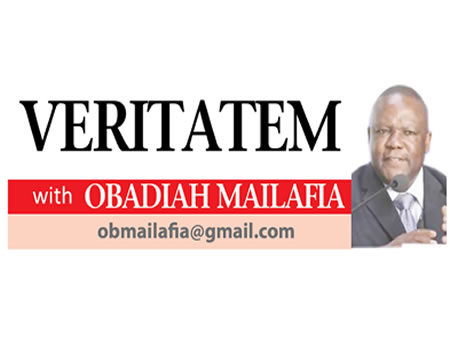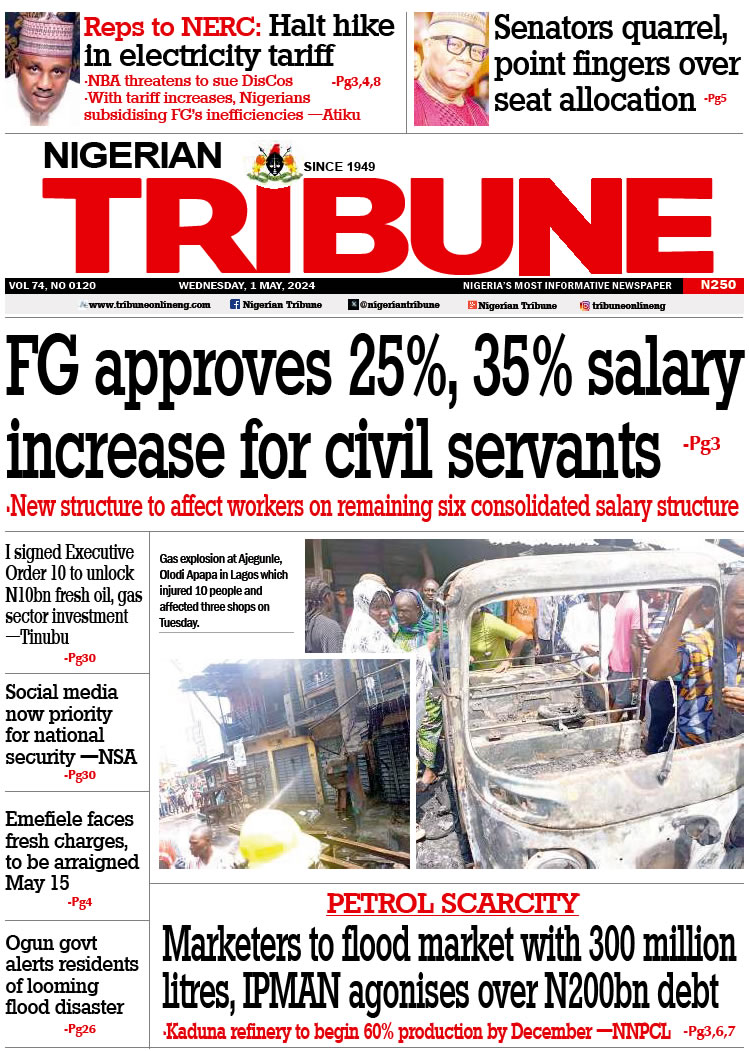Nigeria today has an estimated population of 200 million. The current nominal GDP stands at $447 billion, the largest on the continent. Although blessed with enormous natural resources, we are a poor country. Our per capita GDP is a mere $2,244 while the average life-expectancy is 53 years. In 2018, Nigeria overtook India for the dubious price of having the largest number of the world’s destitute poor. Nigeria’s 80 million poor constitute about 40 per cent of the population, compared to India’s poor of 70 million which are only about 5.8 per cent of the latter’s 1.2 billion population.
An estimated 13 million children are out of school while youth unemployment is as high as 70 per cent in states such as Borno and Zamfara. Some 24 million Nigerian young people are unemployed. When you add to it the number of 20 million under-employed, you have a staggering figure of 44 million youths with no reliable means of sustenance. Disease and illiteracy is rampant. Cultism and ritual killing abound, encouraged by elites who camouflage their wickedness in magic and voodoo rather than science and reason. Many of the public institutions are in a state of terminal decay, including the civil service, the judiciary, police and universities. Government is being run by a cabal in which the vast majority feel alienated and excluded.
Meanwhile, the country has struggled to maintain a maximum electricity generation capacity of 5,000MW. Ethiopia, a comparatively poor country, generates more than 17,000MW. It exports some of its electricity to neighbouring countries because it produces far in excess of what its domestic market consumes. We have one of the worst records for child and maternal mortality, just behind Pakistan and Afghanistan. One out of every five children in Nigeria will die due to preventable causes. Nigeria also has the second most dangerous roads out of 193 countries, with an average toll of 15,000 casualties every year. We are the kidnap capital of the world; a country where banditry and nihilistic lawlessness are the order of things.
A “technically” incompetent Chief Justice of Nigeria
The grim reality of today is that Nigeria’s nationhood is hanging by the slenderest of threads. The recent “Ruga” fiasco has generated widespread anger across the country. Rightly or wrongly, many feel that there is a secret agenda to import well-armed herdsmen militias in their millions from neighbouring countries. The aim could be to reshape the ethnic demographics of the country and to ensure that power permanently resides in the core North to the detriment of all other ethnic nationalities. Whatever motivation, government has crossed the red lines of history and Nigerians are not having any of it. Given the widespread angst and distemper, one single act of madness or miscalculation is capable of plunging our country into complete darkness. It is as bad as that.
It may sound alarmist, but the truth is that, at current trends and path-dependencies, Nigeria will not survive by 2040 if we persist on our path of collective folly. I have been a keen student of systems theory. When systems methodology is applied to the Nigerian situation, one can easily be overwhelmed by pessimism. At various speaking forums I have often asked my audiences if, given our country’s current trajectory — and considering all the data they have about our economics, demographics, public finances, infrastructures and all – if they believe our country can survive in the next 20 years. The response has always been a resounding NO.
How did we get here?
There is a phenomenon that economists characterise as “path dependence.” It derives from the idiom of Newtonian mechanics as applied to economic science. It refers to the fact that once a system continues on a given trajectory, it will, by the ineluctable laws of motion, continue on that path, until an equal and opposite force sets it on a different path. We know that Nigeria’s population doubles every 30 years. Our current population of 200 million get to 410 million by the year 2050. We would have surpassed the United States to the position of the third most populous nation on earth, behind China and India.
Ours is a tragically divided country. Fissiparous pressures are mounting on our political system, fuelled by the embers of bitterness and state impunity. The moral fibre of the state is being weakened by incompetence and hidden, sectional agendas. There is kidnapping, criminality, banditry and lawlessness everywhere; and with it the continuing spread of egregious violence and the kind of nihilism that could only have been conjured by the fables of Russian writer Fyodor Dostoevsky.
In spite of the much-touted “War Against Corruption,” grand larceny continues unchallenged. The leadership do not understand that a systemic problem of this magnitude could not possibly be solved by an infantile approach anchored on chasing common thieves. The state of our infrastructures is in terminal decay, as indeed our major public institutions.
The roots of our predicament go back to the nature of the colonial state that existed prior to independence – an apparatus that was created by force and preserved by colonial hegemony and power. The administrative structures and the system of production were principally geared to serve the interests of the British economy and metropolitan capital in general. After independence in October 1960, the elites that took over power were essentially a fractious ethnic-oriented oligarchy that tended to perpetuate pre-existing structures and their entrenched privileges. Far from building a productive and autonomous capitalist economy, they only succeeded in reproducing a neo-colonial capitalist system anchored on producing primary commodities for exports while importing manufactured goods.
The federal structure that was bequeathed by the British was highly skewed in favour of the North, which constituted two-thirds of the landmass. The well-known authority on colonial government, Margery Perham, described it as a delicate “tripod” that was structurally positioned to fail in due course of time. It violated one of the key principles of federalism as understood by Kenneth Wheare, that none of the federating unit should be so large as to overwhelm or threaten the others. It may well be that the British deliberately created a federation that would ensure that power permanently resides in the conservative North. It was their only way of guaranteeing continuing political influence within the country.
The radical Pakistani sociologist Hamza Alavi raised those issues in a controversial and much-debated essay that he wrote in the seventies. From his case studies of Pakistan and Bangladesh, Alavi characterised the post-colonial state as an “overdeveloped” institution could not meet the demands and expectations of the generality of its citizenry. It was in the very nature of the post-colonial that the elites would be in no position to articulate a vision of autonomous economic development for their newly liberated countries.
The so-called “Asian Miracle” of the last decades has altered the landscape of world development thinking. Countries such as Singapore and South Korea have already joined the ranks of advanced industrial nations while countries such as Malaysia and Indonesia are rapidly “catching up” with the advanced industrial countries. The Asian countries embraced the model of the industrialisation and the developmental state in the way that we in Africa never did. Today, only a couple of African countries can be regarded as developmental states in any genuine sense: Mauritius, Botswana, Rwanda and perhaps Ethiopia.
In these matters, leadership is of the supremest importance. Unfortunately, our country has never been blessed with great leaders. Most have been at best mediocre; some patently belong to the lower orders.
Clearly, leadership is decisive, together with the nature of social coalitions and the geopolitical locus of the country in the global economy. But it is also evident that leaders themselves must operate under structural and institutional constraints – limitations set by the dynamics of political coalitions, inherited institutional arrangements within the political system and whatever policy space they can manoeuvre. Coupled with their mindset and psycho-social peculiarities, leaders could make the difference between prosperous nations or predatory states. Located in Asia, countries such as South Korea and Indonesia had Japan, their more advanced regional model. The Japanese offered a mirror image of how things could be if they put their home in order. And they are willing to help. We in Africa remain, sadly, playthings in the hands of shadowy vultures from whom we must extricate ourselves. China could have been a useful partner, but it is not an altogether honest broker.
Where we are today is also because of failure to frontally address the binding constraints to inclusive, employment-enhancing growth. The binding constraints derive mainly from infrastructure constraints such as electricity, roads, railways, ports and harbours and inefficient institutional infrastructures, weak bureaucracy and widespread insecurity. There is a lack of effective policies to enhance national competitiveness and to create an eco-system that is attractive to investors and local businesses. There is also a lack of adequate capital formation, with weak investments in education and technical-vocational skills.
Restoring our collective destiny will require quantum leaps in faith, in imagination and in the quality of leadership. Hope, they say, springs eternal!



